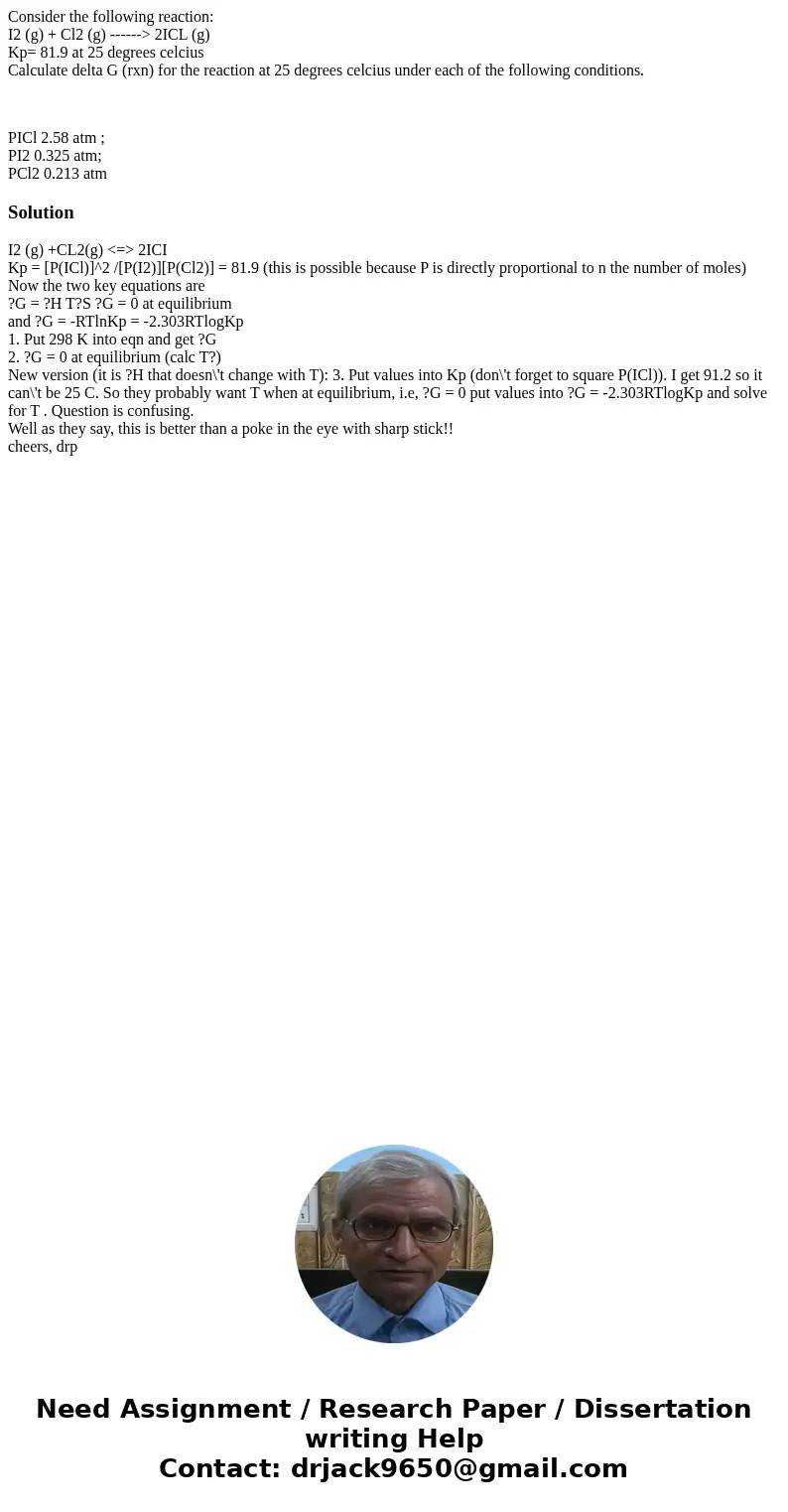Consider the following reaction I2 g Cl2 g 2ICL g Kp 819 a
Consider the following reaction:
I2 (g) + Cl2 (g) ------> 2ICL (g)
Kp= 81.9 at 25 degrees celcius
Calculate delta G (rxn) for the reaction at 25 degrees celcius under each of the following conditions.
PICl 2.58 atm ;
PI2 0.325 atm;
PCl2 0.213 atm
Solution
I2 (g) +CL2(g) <=> 2ICI
Kp = [P(ICl)]^2 /[P(I2)][P(Cl2)] = 81.9 (this is possible because P is directly proportional to n the number of moles)
Now the two key equations are
?G = ?H T?S ?G = 0 at equilibrium
and ?G = -RTlnKp = -2.303RTlogKp
1. Put 298 K into eqn and get ?G
2. ?G = 0 at equilibrium (calc T?)
New version (it is ?H that doesn\'t change with T): 3. Put values into Kp (don\'t forget to square P(ICl)). I get 91.2 so it can\'t be 25 C. So they probably want T when at equilibrium, i.e, ?G = 0 put values into ?G = -2.303RTlogKp and solve for T . Question is confusing.
Well as they say, this is better than a poke in the eye with sharp stick!!
cheers, drp

 Homework Sourse
Homework Sourse